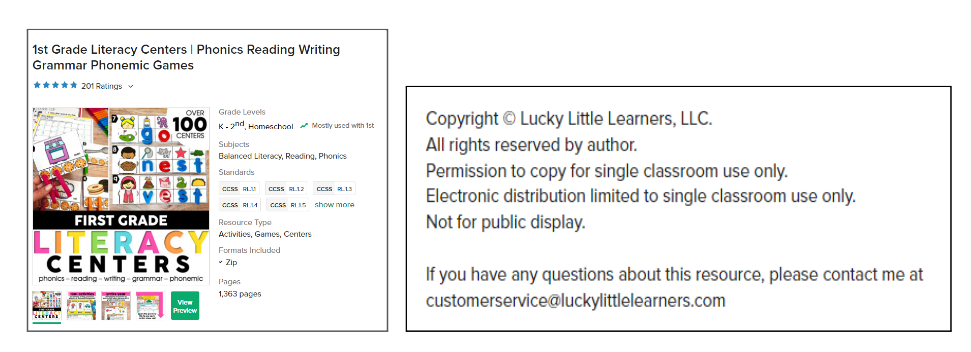Inside the TJRC: All About Copyright – Fair dealing, digital resources, image rights, and more!
October 2, 2023
The Terry James Resource Centre (TJRC) is the Upper Grand District School Board’s one-stop-shop for materials and resources for UGDSB staff. From the media centre and resource centre to 3D printing, and online resources, the TJRC has everything staff need to succeed and pass that success on to UGDSB students. “Inside the TJRC” is an on-going series that will feature some of the amazing resources that the TJRC has to offer.
The Terry James Resource Centre knows you have a lot of questions about copyright and what can and can’t be used in the classroom, newsletters, presentations etc. Don’t worry, we are here to help!
The fair dealing provision of the Canadian Copyright Act allows non-profit K-12 schools to use copyright-protected materials without permission from the owner or the payment of royalties. However, this only applies under certain conditions – namely, that it is for educational purposes and that the use is “fair.”
But what does this mean in practice? Read on for frequently asked questions and helpful resources for navigating copyright at UGDSB.
Can I use images I found on Google for my lesson plans, presentations, etc.?
It depends – images found through a general browser search cannot automatically be used.
- Use the Usage Rights tool in Google to search by Creative Commons licenses – this limits your search to only images where the creators have designated that their materials can be freely reused (see example below).

- Alternatively, if you’ve found an image through a regular browser search that you really want to use, contact the creator to ask for permission – in many cases, creators are willing for their work to be shared if you provide an attribution to them.
- Use images from a free site, like Pixabay or Pexels – these images are royalty free and can be downloaded and reused as needed.
I just purchased a resource from Teachers Pay Teachers – since I own the copy, can I share it with my colleagues?
It depends on how the creator/seller of the resource has set their reproduction and sharing permissions. In many cases, a Teachers Pay Teachers vendor will specify how the purchased resource can be used (see example below).

If you are unsure about the permissions for a resource you purchased online, contact them before reproducing or sharing your copy – get things in writing. If you use a resource in a way that the creator has not permitted, this violates copyright.
I want to copy pages from a couple different student workbooks to create a new resource – since I’m copying less than 10% of the originals, is this okay?

No. Fair dealing does not cover “consumable resources” – published items intended for one-time use (workbooks, activity sheets, fill-in-the-blank handouts).
Unless the published workbooks say explicitly that you can copy them, or you have received written permission from the creator/publisher to reproduce the materials, you cannot copy these resources even in small amounts.
My students need to watch a film for a unit – if I find it on Netflix or a different streaming service that I subscribe to, can I show it at school?
No. Rarely, if ever, can films that you access from a personal subscription service be shown or streamed in the classroom. “Showing movies from subscription services in the classroom is governed by the terms of the agreement between the subscriber and the subscription service. If the agreement provides that use is limited to ‘personal’ or ‘household’ use, for example, then classroom use is not permitted” (Copyright Matters! 5th edition).
To show films and other video content at school, use the streaming platforms the TJRC provides – ON-Core, Curio.ca, and Criterion-on-Demand. To learn more, visit the Streaming Videos page of the TJRC website.
There are so many rules around copyright and fair dealing – where can I go for help?
Start with the self-help resources on the Copyright & Fair Dealing page of the TJRC website, including:
- Links to UGDSB’s copyright policy and procedure;
- A general overview of fair dealing;
- An interactive decision-tree tool created by the Council of Ministers of Education, Canada (CMEC);
- A booklet of commonly asked questions about copyright in the classroom; and
- Guidelines for showing films and videos at school for non-educational purposes.
If you have questions about copyright or fair dealing at UGDSB, please reach out to Lauren Bull, Supervisor of Library & Media Services for support.
Categories: News Tags: Inside the TJRC
